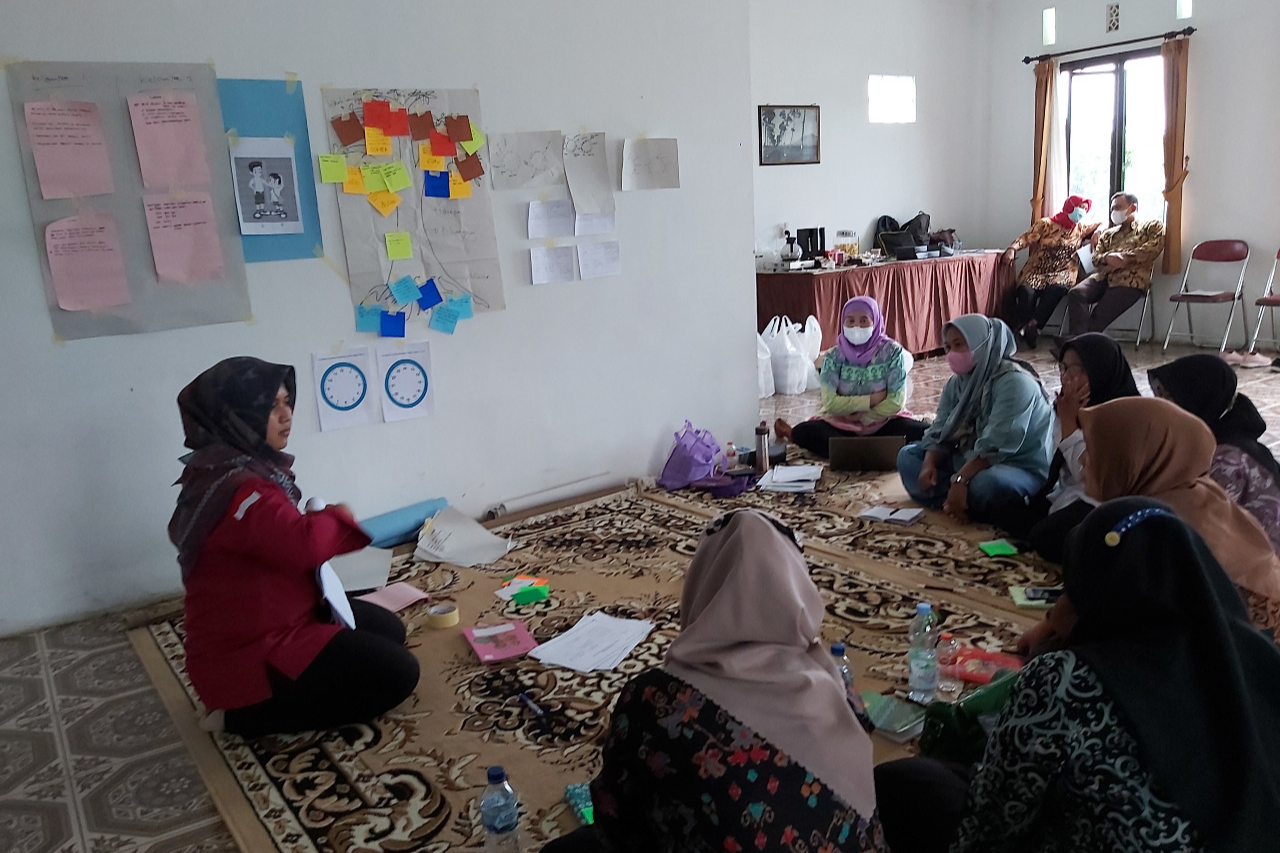Prevent Stunting, Ministry of Social Affairs Provides Training to Thousands of Social Welfare Human Resource

JAKARTA (August 13, 2022) - Government has determined reducing stunting rates as one of three national priority programs. President Joko Widodo targets the prevalence of stunting to fall to 14 by 2024.
To support this goal, the Ministry of Social Affairs through the Social Welfare Education and Training Center provides stunting prevention and treatment (P3S) training for Family Hope Program human resources throughout Indonesia. This training has been carried out since 2021 with the target achievement of more than 20,000 training participants.
Human Resources who have taken this training have the potential to disseminate information on stunting prevention to 10 million beneficiary families of the Family Hope Program (KPM PKH) and 18.8 million recipients of the non-cash food assistance program. PKH has conditionality on each component of assistance, including health.
In line with this, the Head of BBPPKS Bandung, Toto Restuanto Sembodo in his statement said that he hopes that training participants are able to prevent stunting through coaching on KPM.
"After completing the training, participants can understand and master knowledge about stunting and make prevention efforts for the KPM," he said.
Stunting training, continued Toto, is a priority program in BBPPKS Bandung strategic plan. In 2022, BBPPKS Bandung targets 2,000 PKH Facilitators to participate in P3S Training.
One of the PKH Facilitators who has received P3S Training, Fajar Jaerudin said the training he received was very beneficial for himself and KPM.
“Through P3S Training, I got a lot of knowledge about stunting. I also shared this knowledge with KPM through P2K2 activities (Family Capacity Building Meetings)," said PKH facilitator in Kandang Village, Comal Pemalang District, when contacted by telephone.
Fajar received P3S Training from the Yogyakarta Social Welfare Education and Training Center (BBPPKS) three months ago and has provided training to KPM on stunting prevention.
"I have given a stunting introduction module. Indeed, many KPMs are not familiar with the terms stunting, but after we tell them, they understood the stunting stuffs,” he said.
In line with Fajar, PKH assistant from South Cikarang District, Meylan Septiani said that P2K2 which discussed stunting provided a lot of insight to the community, especially KPM.
“Before being given training on stunting, KPM could not distinguish between stunted children with disabilities and stunted. But after training, I do understand," said the woman who is familiar with Lani.
The PKH assistant, Lani continued, acts as an educator in preventing stunting. This includes preventive measures, including encouraging changes in KPM behaviour through agreed commitments.
“What is important is behaviour change. The KPM I assisted were initially reluctant to go to the posyandu or health center, but after being given training, they became more frequently get used to go to posyandu because they did not want their children to be stunted. The non-cash food assistance program is also useful, they actually being used to buy nutritious food that contains good carbohydrates and protein. I used to buy anchovies, now I buy chicken,” he continued.
P2K2 which discusses stunting is considered capable of increasing KPM awareness of stunting so that it can take preventive measures. According to Lani, changes in people's behaviour are quite visible, for example in community participation in accessing health facilities, they go to the posyandu regularly, paying attention to 1000 days of life during pregnancy, immunization for toddlers, and paying attention to nutritious food intake.
Likewise with Lani, PKH Assistant from Sukabumi Regency, Rosianah explained that the discussion on stunting in P2K2 was able to identify the risk of stunting in toddlers.
“In my place, the nutrition has been fulfilled, but in fact it is still considered stunting because the height of the child is less than the standard set by the WHO (World Health Organization). After research, it turns out to be less stimulant. Finally, we encourage them to take their children to the Kelompok Belajar/KB (Play Group),” said the PKH Facilitator who received P3S Training from BBPPKS Bandung.
According to him, children's participation in family planning can stimulate gross motor skills and children's growth so that their height increases.
In addition to providing counselling, PKH facilitators also advocate when there are KPMs who do not have health insurance such as KIS or BPJS so that they can access health services at the first level of health facilities.
Public Relations Bureau
Ministry of Social Affairs
 English
English
 Bahasa
Bahasa
